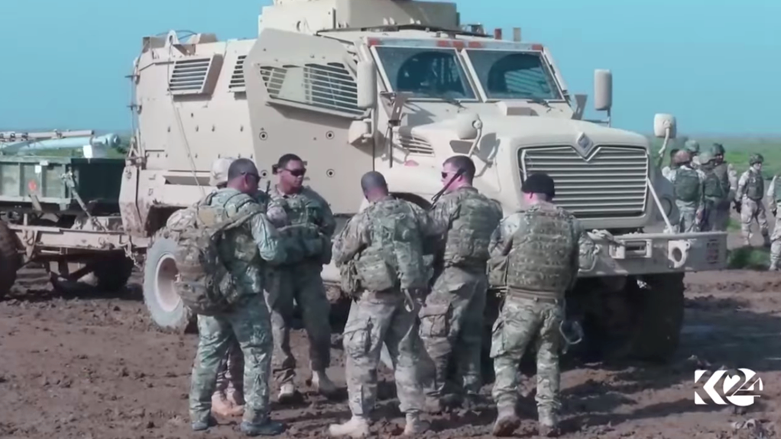Long-term US military presence likely in Kurdistan

WASHINGTON DC, United States (Kurdistan24) – Lt. Gen. Stephen Townsend, Commander of the US-led coalition fighting the Islamic State (IS), briefed the Pentagon press corps earlier this week and said the fight against IS has “changed the relationship” between the US military and the Peshmerga.
Responding to a question from Kurdistan24, Townsend explained there had been “basically no relationship” from 2011 to 2014 between the US military and the Peshmerga, but “there is one now,” he said.
In addition to the Peshmerga, Townsend listed the Iraqi security forces, as well as the Syrian Democratic Forces (SDF), as groups with which the US military has developed a partnership over the past two and a half years.
Townsend also revealed that his “personal belief” was that the US should maintain a military presence in Iraq after IS’ defeat. “We walked away from Iraq a few years ago,” he said. “So, I would propose that we try to find a different solution.”
“My recommendation will be that we should stay here,” the US commander explained. “And I believe there’s an appetite to do that in the broader coalition. So, I’ll make that recommendation at some point to our chain of command.”
Townsend declined to say just where he thought the coalition should maintain its future bases: the Kurdistan Region, Iraq proper, or both.
A thoughtful military planner, however, would seek a presence in both areas to “maximize US options and flexibility,” a former US Army intelligence officer suggested. Col. Norvell DeAtkine, a retired US Army officer and Middle East expert, agreed, adding, “It would also allay criticism that we are favoring one side or another.”
Townsend was clear that this decision lies not with him, but with the US president. If that were Barack Obama, his recommendation might not be accepted. However, with Donald Trump in the White House, it is a near-certainty it will be.
Thus, there is a high likelihood the US will maintain a military presence in the Kurdistan Region for the foreseeable future.
A decade ago, Townsend was a brigade commander in Mosul. Shortly before the press briefing, he completed a battlefield circulation, traveling from his Baghdad headquarters to Mosul, where he spoke at length with coalition and Iraqi officers and heard their intelligence assessments.
Townsend noted, “Some of the same neighborhoods” in Mosul which had supported al-Qaida in 2006, when he was there, were now “sources of support” for IS.
“These are largely Sunni neighborhoods” on the city’s west side, he explained. “The Government of Iraq failed to connect to these people, failed to make them feel like they were part of a larger Iraqi state.”
After IS is defeated, Baghdad “has to reach out to these groups of people,” he added. “Until that happens, you’re always going to have a disenfranchised population that’s always looking for the thing that will represent their interests better than the thing that is currently ruling their life.”
Townsend’s remarks echo views repeatedly expressed by Kurdish officials. For example, last July, three months before the Mosul operation began, President Masoud Barzani advised Britain’s ambassador to Iraq, “A political solution to post-Islamic State Mosul is as, if not more, important as the military operation itself.”
Most recently, Aziz Ahmed, an assistant to Masrour Barzani, Chancellor of the Kurdistan Region Security Council, wrote Sunday in the Wall Street Journal of the need for a political agreement that would “outline a path toward governance and offer more than a Shia-centric alternative”—a recommendation closely resembling Townsend’s own.
These are important issues; yet the press concentrated on one issue: the civilian casualties that may have been caused by a March 17 US airstrike.
The US is now investigating the incident, and Townsend acknowledged, “We probably had a role.” But that still leaves room for complicating factors, including the possibility that IS rounded up and detained civilians, using them as human shields in the building that was struck.
There is a “fog of war.” Mishaps are bound to occur. While acknowledging likely responsibility, Townsend sought to put the incident in perspective. He reminded his audience of IS’ brutalities, noting there are “countless mass graves surrounding Mosul.”
His words had little impact, however. As the briefing drew to a close, Townsend expressed his considerable frustration, “[IS] is slaughtering Iraqis and Syrians on a daily basis. [IS] is cutting off heads. [IS] is shooting people, throwing people from buildings, burning them alive in cases, and they're making a video record to prove it. This has got to stop. This evil has got to be stamped out.”
Editing by Delovan Barwari
